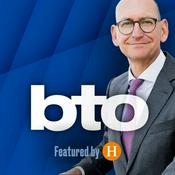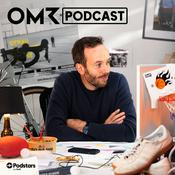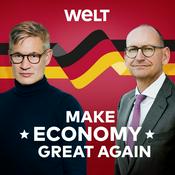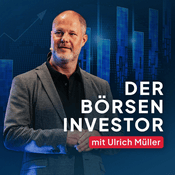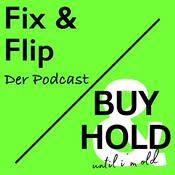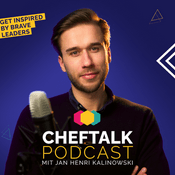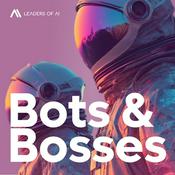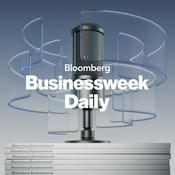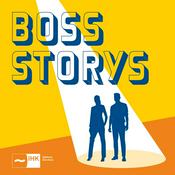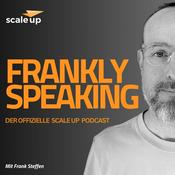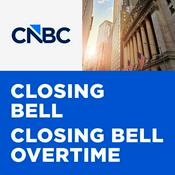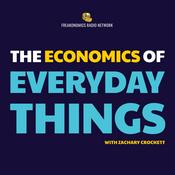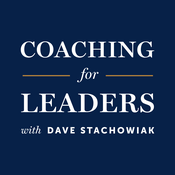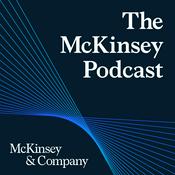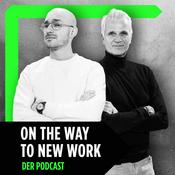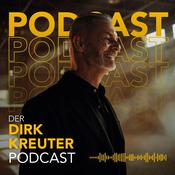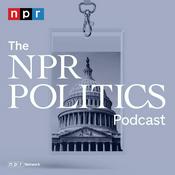430 Episoden
- Book tour tickets and details here.
The recent protests in Iran are about so many things. Human rights, corruption, freedom. But this time – they are also motivated by economic hardship. Hardship caused, in part, by US sanctions.
The US has been sanctioning Iran in one way or another for 47 years. But sanctions, as a tool, only work some of the time, and US sanctions on Iran have not always conformed to what experts consider best practices.
On today’s episode: What did US sanctions do to Iran's economy? How did they feed into the latest protests and crackdown in Iran? Sanctions are supposed to avert war, but how different from war are they?
To learn more about the protests in Iran and the country’s history, check out our great friends at Throughline:
Iran Protests Explained
Iran and the U.S., Part One: Four Days In August
Iran and the U.S., Part Two: Rules of Engagement
Iran and the U.S., Part Three: Soleimani’s Iran
Subscribe to Planet Money+
Listen free: Apple Podcasts, Spotify, the NPR app or anywhere you get podcasts.
Facebook / Instagram / TikTok / Our weekly Newsletter.
This episode was hosted by Mary Childs and Nick Fountain. It was produced by James Sneed with help from Willa Rubin. It was edited by Marianne McCune, fact-checked by Sierra Juarez, and engineered by Cena Loffredo and Jimmy Keeley. Planet Money’s executive producer is Alex Goldmark.
Learn more about sponsor message choices: podcastchoices.com/adchoices
NPR Privacy Policy - Planet Money book tour ticket info and dates here.
A record number of Americans with poor or just okay credit are behind on their car payments. And once last year’s numbers are tallied, an estimated 3 million cars will have been repossessed in 2025. That would be on par with how bad it got during the Great Recession. What’s going on? And why now?
Today on the show, we focus on the micro part of the story to answer the macro question. First, we hear a favorite story of ours from 2019. We follow the lifecycle of a delinquent car loan from three different perspectives: the salesman, the driver, and the repo man. Then we’ll hear an update from them in 2026 as we try to find out why so many Americans are behind on their car payments.
Subscribe to Planet Money+
Listen free: Apple Podcasts, Spotify, the NPR app or anywhere you get podcasts.
Facebook / Instagram / TikTok / Our weekly Newsletter.
This episode is hosted by Kenny Malone and Preeti Varathan. It was originally produced by Darian Woods and edited by Bryant Urstadt. Our update was reported by Vito Emanuel and produced by Sam Yellowhorse Kesler, and edited by Planet Money’s executive producer, Alex Goldmark.
Learn more about sponsor message choices: podcastchoices.com/adchoices
NPR Privacy Policy - Book tour dates and ticket info here.
Housing is too expensive. Everyone knows this. Democrats know that talking about it plays well with voters. And now – in a midterm election year – President Donald Trump seems to be focused on it, too.
His administration has recently started talking more about affordability. And they’re taking action with two new initiatives that aim to make buying a house easier.
Today on the show, we’re gonna take a close look at these two moves. And ask: Will they work?
Subscribe to Planet Money+
Listen free: Apple Podcasts, Spotify, the NPR app or anywhere you get podcasts.
Facebook / Instagram / TikTok / Our weekly Newsletter.
This episode was produced by Willa Rubin with production help from Sam Yellowhorse Kesler. It was edited by Marianne McCune, fact-checked by Sierra Juarez, and engineered by Jimmy Keeley and Cena Loffredo. Alex Goldmark is our executive producer.
Music: NPR Source Audio - "No Problem,” “Fruit Salad,” “Checking In” and “Day Dreamer.”
Learn more about sponsor message choices: podcastchoices.com/adchoices
NPR Privacy Policy - In the 1990s, Congress created HOPE VI, a program that demolished old public housing projects and replaced them with more up-to-date ones. But the program went further than just improving public housing buildings. HOPE VI was designed to transform neighborhoods with concentrated poverty into neighborhoods that attracted people with different incomes. Some people who moved to HOPE VI neighborhoods earned too much to qualify for public housing. And some even paid for market-rate housing. The idea was that this would help create new opportunities for the low-income people who lived there and even lift people out of poverty.
For years though, there wasn’t a clear answer to whether this approach actually succeeded. A new working paper from Raj Chetty and the team at Opportunity Insights finally provides some answers. On today’s show: Who really benefits when people living in poverty are more connected to their surrounding communities? Are there lessons from the HOPE VI experiment that could apply to other kinds of policies aimed at fostering upward mobility?
More about Opportunity Insights’ study and a link to their interactive map here.
Pre-order the Planet Money book and get a free gift. / Subscribe to Planet Money+
Listen free: Apple Podcasts, Spotify, the NPR app or anywhere you get podcasts.
Facebook / Instagram / TikTok / Our weekly Newsletter.
Learn more about sponsor message choices: podcastchoices.com/adchoices
NPR Privacy Policy - Book tour dates and ticket info here.
Just as every market has its first movers, every religion has its martyrs — the people willing to risk everything for what they believe. Pastor Dave Hodges just might be a little bit of both. He’s the spiritual leader of the Zide Door Church of Entheogenic Plants, in Oakland, California which places psilocybin mushrooms at the center of their religious practice.
Today on the show, like its 130,000+ members, we’re going to take a trip through the psychedelic mushroom megachurch. We’ll meet one of the lawyers trying to keep psychedelic religious leaders like Pastor Dave from running afoul of the law, and get a peek into how the government decides whether a belief system counts as sincere religion.
This episode was reported with support from The Ferriss – UC Berkeley Psychedelic Journalism Fellowship.
Subscribe to Planet Money+
Listen free: Apple Podcasts, Spotify, the NPR app or anywhere you get podcasts.
Facebook / Instagram / TikTok / Our weekly Newsletter.
This episode was hosted by Alexi Horowitz-Ghazi. It was produced by Sam Yellowhorse Kesler and edited by Eric Mennel. It was fact checked by Sierra Juarez and engineered by Kwesi Lee with help from Robert Rodriguez. Alex Goldmark is Planet Money’s executive producer.
Learn more about sponsor message choices: podcastchoices.com/adchoices
NPR Privacy Policy
Weitere Wirtschaft Podcasts
Trending Wirtschaft Podcasts
Über Planet Money
Wanna see a trick? Give us any topic and we can tie it back to the economy. At Planet Money, we explore the forces that shape our lives and bring you along for the ride. Don't just understand the economy – understand the world.Wanna go deeper? Subscribe to Planet Money+ and get sponsor-free episodes of Planet Money, The Indicator, and Planet Money Summer School. Plus access to bonus content. It's a new way to support the show you love. Learn more at plus.npr.org/planetmoney
Podcast-WebsiteHöre Planet Money, Alles auf Aktien – Die täglichen Finanzen-News und viele andere Podcasts aus aller Welt mit der radio.de-App

Hol dir die kostenlose radio.de App
- Sender und Podcasts favorisieren
- Streamen via Wifi oder Bluetooth
- Unterstützt Carplay & Android Auto
- viele weitere App Funktionen
Hol dir die kostenlose radio.de App
- Sender und Podcasts favorisieren
- Streamen via Wifi oder Bluetooth
- Unterstützt Carplay & Android Auto
- viele weitere App Funktionen


Planet Money
Code scannen,
App laden,
loshören.
App laden,
loshören.






